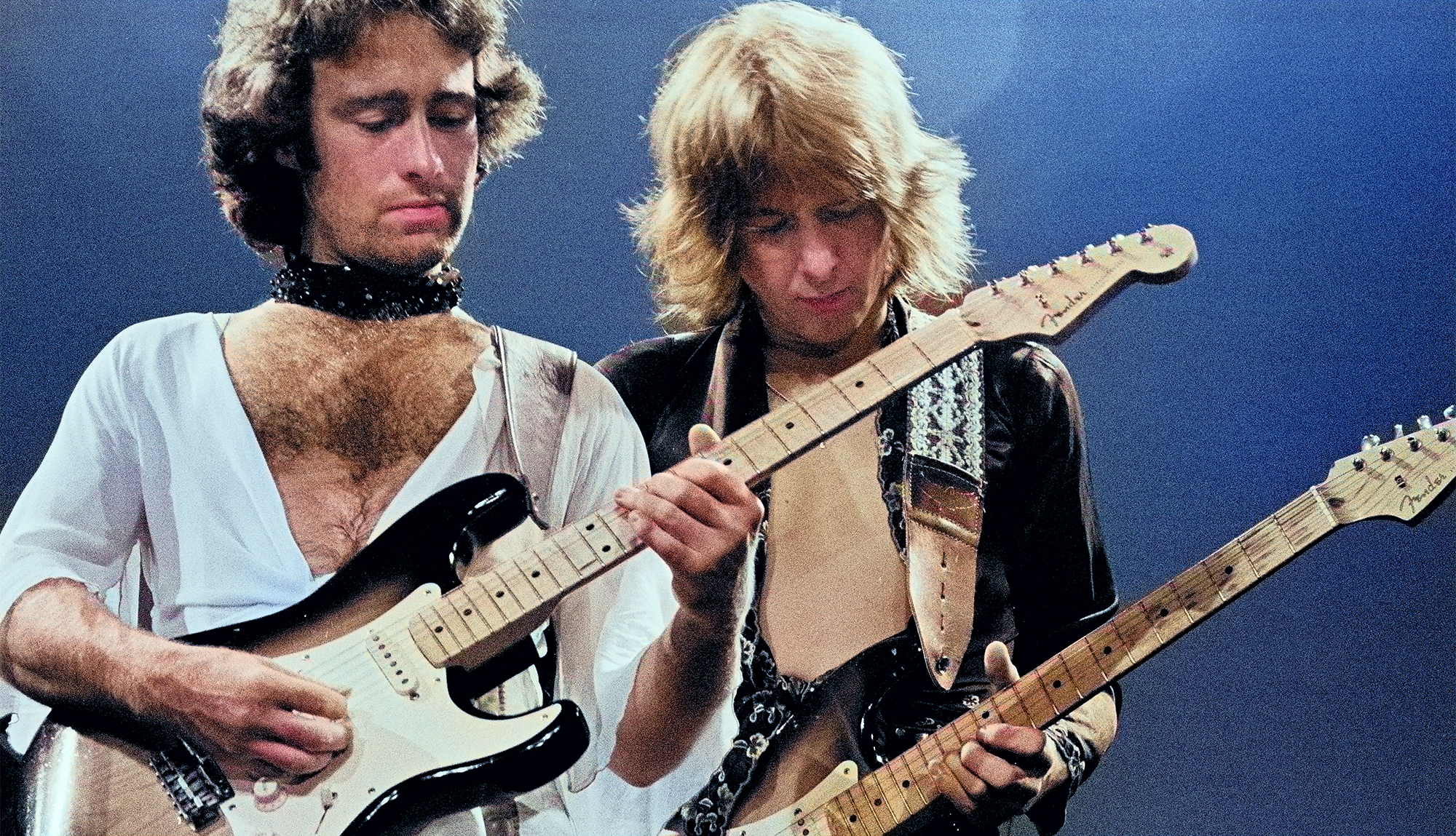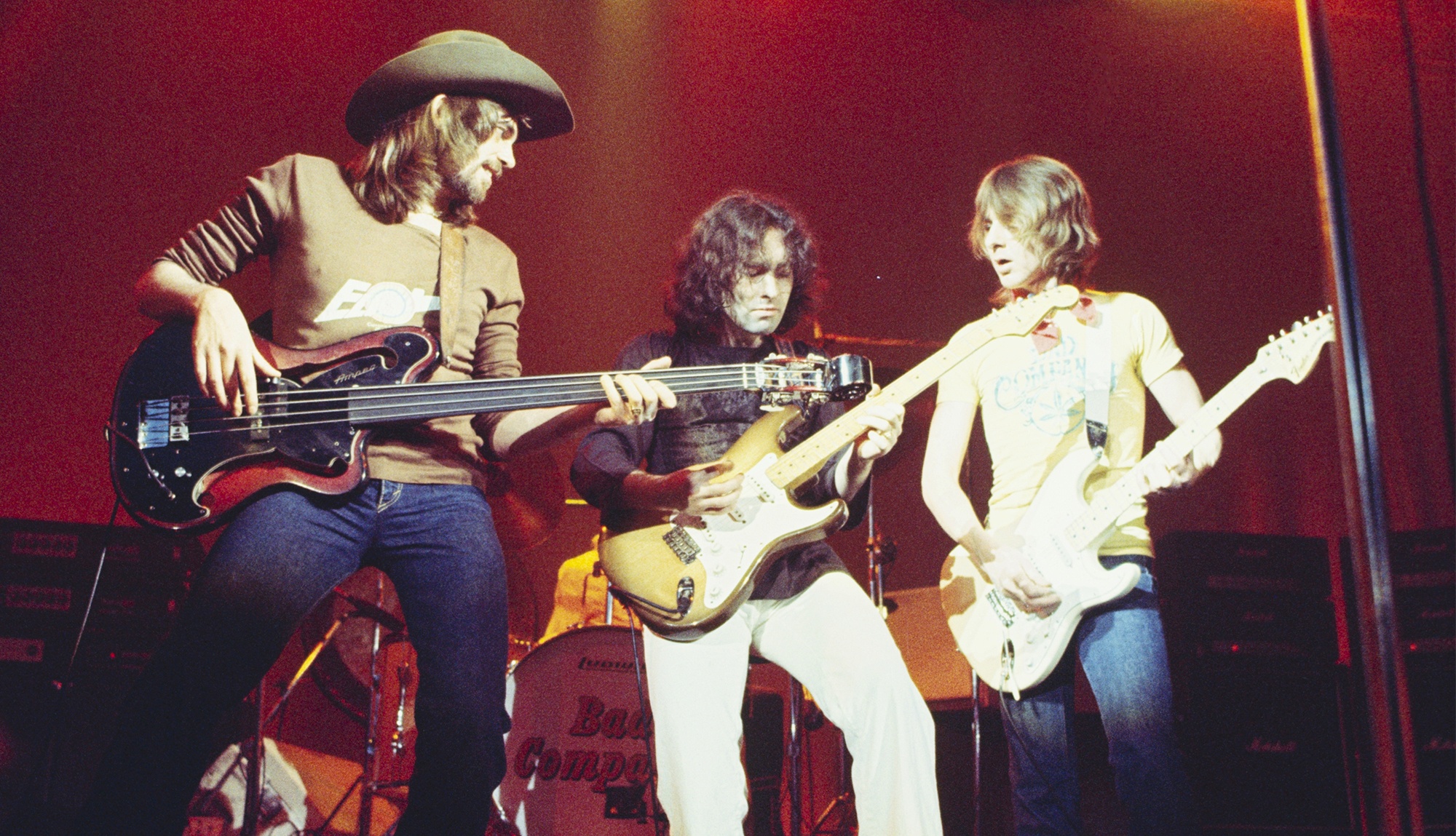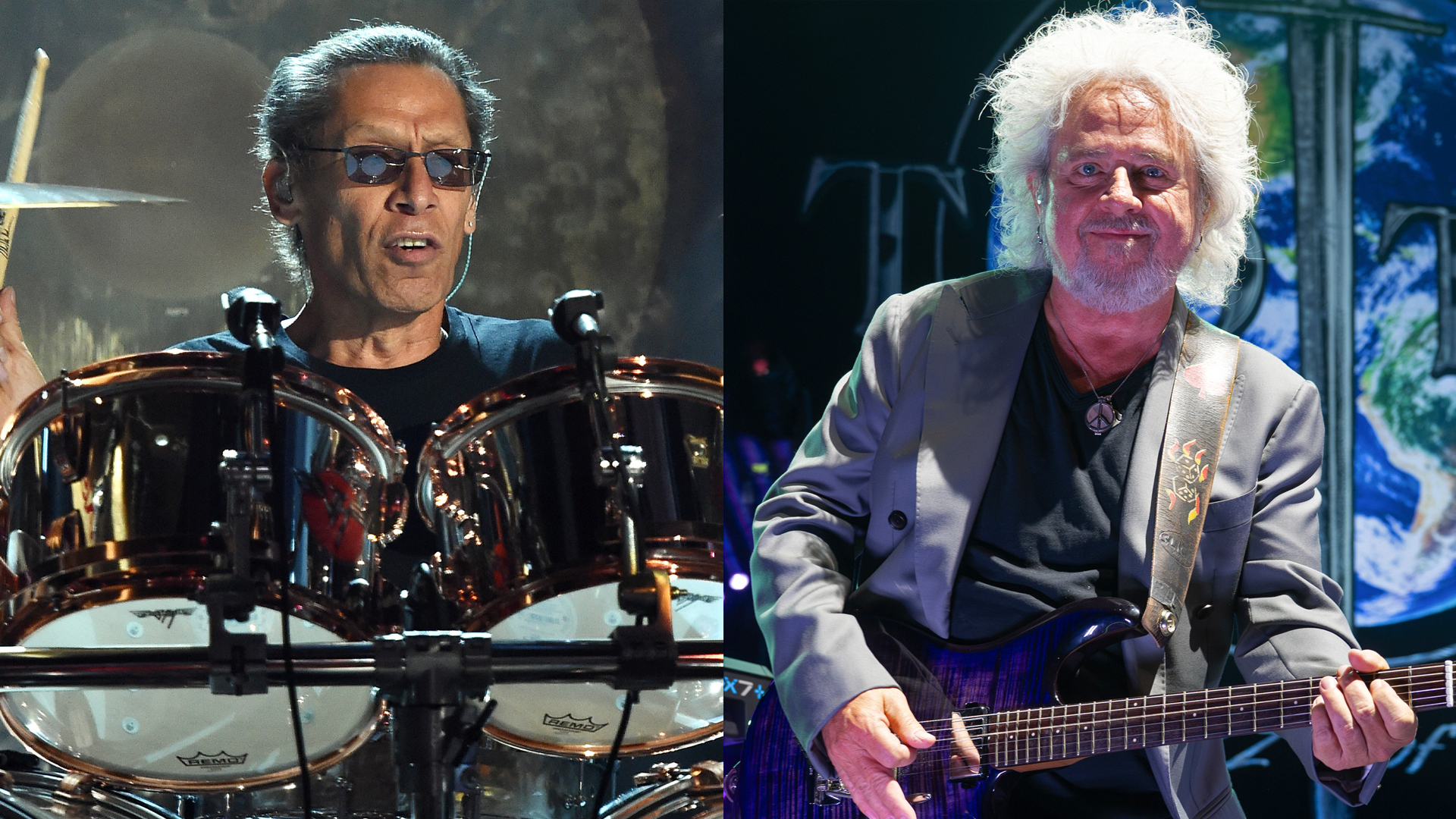“I said, “No, ‘Bad Company’ is the name of a song I'm working on.” Paul Rodgers reveals guitarist Mick Ralphs' role in the origins of Bad Company’s name and talks about recording his vocals in a field under a full moon
In a new interview with Trunk Nation, Rodgers reflects on Bad Company's upcoming — and long-awaited — Rock Hall induction

All the latest guitar news, interviews, lessons, reviews, deals and more, direct to your inbox!
You are now subscribed
Your newsletter sign-up was successful
Paul Rodgers is known as one of rock music’s greatest vocalists. From his 1970s roles with Free and Bad Company to his 1980s run with Jimmy Page in the Firm and his stint singing for Queen from 2005 to 2009, he’s had a spectacular career.
One facet of it will have a new moment in the spotlight when Bad Company is inducted into the Rock and Roll Hall of Fame this November. The band, which formed in 1973 following Rodgers’ time with Free, quickly made a name for itself with cuts like “Can’t Get Enough,” “Feel Like Makin’ Love,” “Ready for Love” and “Movin’ On.”
Beyond Rodgers’ vocals and work as both rhythm guitarist and keyboardist, the band featured bass guitar player Boz Burrell, drummer Simon Kirke and guitarist Mick Ralphs, whose expressive lead guitar work — frequently performed on a 1958 Gibson Les Paul — helped place Bad Company in the upper echelons of 1970s rock groups.
“I think he’s very versatile, and his sound is very versatile, and he locks into a song perfectly,” Rodgers said of Ralphs in an interview in Guitar Player’s February 2024 issue. “If it’s ‘Can’t Get Enough’ or ‘Bad Company,’ or ‘Feel Like Makin’ Love’ or ‘Shooting Star,’ you can immediately recognize his playing and go, ‘That’s Mick Ralphs.’”
Ralphs has been in a nursing facility since he suffered a stroke in 2016. In a new interview with Eddie Trunk on his SiriusXM show, Trunk Nation, Rodgers explains how he called the guitarist to tell him Bad Company would be inducted into the Rock and Roll Hall of Fame. That, in turn, led to Rodgers telling Trunk about Ralphs’ role in giving the band its name in early 1973.

At the time the group was forming, Rodgers was at work on a new song called “Bad Company.” When he mentioned the song to Ralphs while speaking on the telephone, Rodgers said the guitarist promptly dropped the phone.
When he got back on the line, he was ecstatic.
All the latest guitar news, interviews, lessons, reviews, deals and more, direct to your inbox!
“And he said, ‘Yes, that's it! That's what we gotta call the band,’” Rodgers recalls.
“And I said, ‘No, it's actually a song, you know, I'm just working on.’
“And he said, ‘No, no, we've gotta call the band Bad Company. That's it!’
“He was just elated. It was great.”
While the name would become famous, the song itself would prove to be a durable calling card for the group, a moody and atmospheric rock track that Rodgers described as having a Western vibe, "with an almost biblical, promised-land kind of lawless feel to it." Although never released as a single, "Bad Company" earned plenty of airtime on FM radio back in the day and remains one of the group’s most popular cuts.
Rodgers recalled to Trunk how producer Ron Nevison, eager to capture the right vibe for the vocal track, had Rodgers sing the tune in the middle of field behind Headley Grange, the former workhouse in Hampshire, England, where Led Zeppelin composed and cut several of their albums, including Led Zeppelin III and IV, Houses of the Holy and Physical Graffiti.
“He was putting microphones out in the field one day, with the headphones and everything,” Rodgers says. “I said, ‘What are you doing?’
“He said, ‘Well, we're gonna do the vocal for “Bad Company” out in the field here because it’s a full moon tonight. Want to get the atmosphere.’
“And so we did that, trumping across these fields in the middle of the night and singing the song basically with headphones on and the microphone there.
"It was really, really atmospheric. It was very beautiful. You know, you can hear a cold wind blowing at the very end of it because the mic picked it up.”
As for that Rock Hall induction, Rodgers tells Trunk he's still coming to grips with the honor and planning for the event.
“Been pretty relaxed actually about the whole thing. I didn't really get too worked out, but now that it's happening…” he says, trailing off before thanking Trunk — a voter for the Hall of Fame — for his support.
“I know that you and the fans have been working on this for years, so congratulations to you and the fans,” Rodgers says. “The honor is yours.”
Rodgers says Ralphs will not attend the event. Burrell died in 2006, but the singer says the bassist's wife, Cathy, will attend, and Simon Kirke is reportedly appearing.
Rodgers says he doesn’t know who will induct the group, but of course most people hope it will be Jimmy Page, who helped sign Bad Company to Led Zeppelin’s Swan Song record label. Bad Company’s 1973 self-titled debut was actually the label’s first release.
“I actually don't know,” Rodgers says of who will induct the group. “There could be so many. There's so many options to ask and I don't want to offend anyone by not asking them. It's all a case of we'll see. It'll be a surprise.”
As for who will perform at the show, again, Rodgers is keeping quiet.
"Well, we're talking about it, shall we say that? I can't say too much.”
Christopher Scapelliti is editor-in-chief of GuitarPlayer.com and the former editor of Guitar Player, the world’s longest-running guitar magazine, founded in 1967. In his extensive career, he has authored in-depth interviews with such guitarists as Pete Townshend, Slash, Billy Corgan, Jack White, Elvis Costello and Todd Rundgren, and audio professionals including Beatles engineers Geoff Emerick and Ken Scott. He is the co-author of Guitar Aficionado: The Collections: The Most Famous, Rare, and Valuable Guitars in the World, a founding editor of Guitar Aficionado magazine, and a former editor with Guitar World, Guitar for the Practicing Musician and Maximum Guitar. Apart from guitars, he maintains a collection of more than 30 vintage analog synthesizers.



